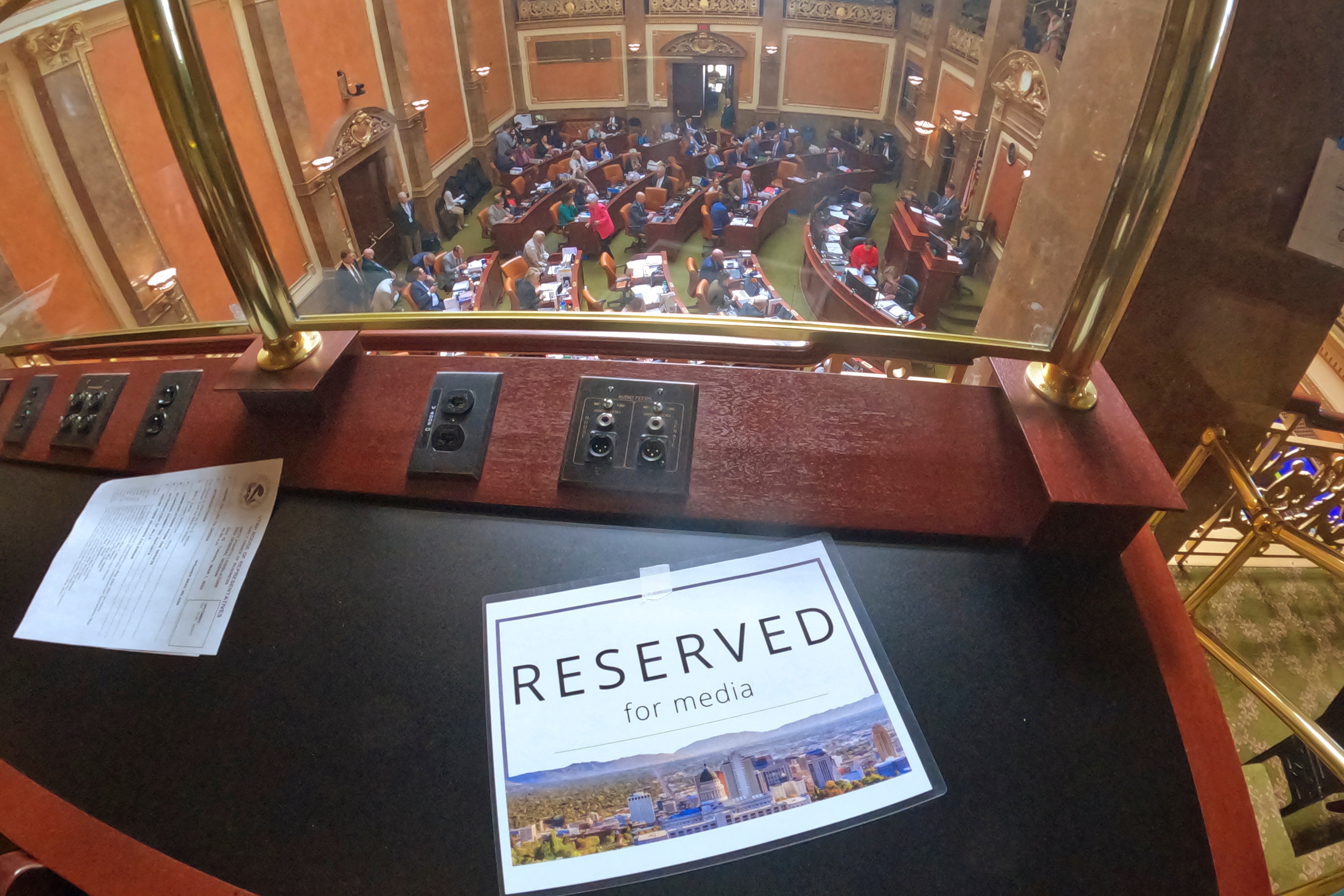Utah lawmakers pass new media restrictions for House floor
The Utah House of Representatives has approved new rules limiting where members of the press can film and interview lawmakers, following similar action taken by the Utah Senate weeks ago

Your support helps us to tell the story
From reproductive rights to climate change to Big Tech, The Independent is on the ground when the story is developing. Whether it's investigating the financials of Elon Musk's pro-Trump PAC or producing our latest documentary, 'The A Word', which shines a light on the American women fighting for reproductive rights, we know how important it is to parse out the facts from the messaging.
At such a critical moment in US history, we need reporters on the ground. Your donation allows us to keep sending journalists to speak to both sides of the story.
The Independent is trusted by Americans across the entire political spectrum. And unlike many other quality news outlets, we choose not to lock Americans out of our reporting and analysis with paywalls. We believe quality journalism should be available to everyone, paid for by those who can afford it.
Your support makes all the difference.The Utah House of Representatives approved new rules on Tuesday that limit where members of the press can film and interview lawmakers, following similar action taken by the Utah Senate two weeks ago.
The rules extending pandemic-era restrictions on when journalists can report from the floors of state legislative chamber.
Journalists covering the Utah Legislature must now ask for permission to interview lawmakers on the floor of the House of Representatives and other restricted areas. TV reporters must ask committee chairs for permission to film speakers and crowds from behind the dais where lawmakers sit in committee hearings.
"I know that sometimes committee members get a little bit nervous from the cameras right behind them because they can see their screens," Republican Rep. Timothy Hawkes said Monday in a committee hearing about the measure.
Media organizations and journalists covering the statehouse opposed the rules changes in the Utah House and Senate, arguing that restricting media movements would make it more difficult to cover fast-paced statehouse action and make it easier for lawmakers to dodge the press. They said the move reduced transparency — a claim that lawmakers denied.
Utah Media Coalition lobbyist Renae Cowley Laub on Monday proposed an alternative, telling lawmakers that credentialed members of the media were working on establishing a formal press corps that could work with lawmakers to refine the rules in a mutually satisfactory way.
She proposed creating a commission with two members of the press and designees from the House, Senate and state legislative officials to govern press rules, similar to the method used in Utah courthouses.
"As you can tell by doing simple math, the committee would already be stacked in favor of the government. But it does offer the media and members of the press the opportunity to be a part of some of the decisions made regarding their practice and their profession,” she said.
Outside of Utah's Republican-led statehouse, similar restrictions have been passed in Iowa and Kansas.
The new limits come in an environment of increasing attacks on the media and parallel new restrictions placed on journalists covering protests and courtroom proceedings.
They also come as U.S. states and cities loosen coronavirus restrictions that have returned restaurants, sporting events and offices to pre-pandemic capacity.